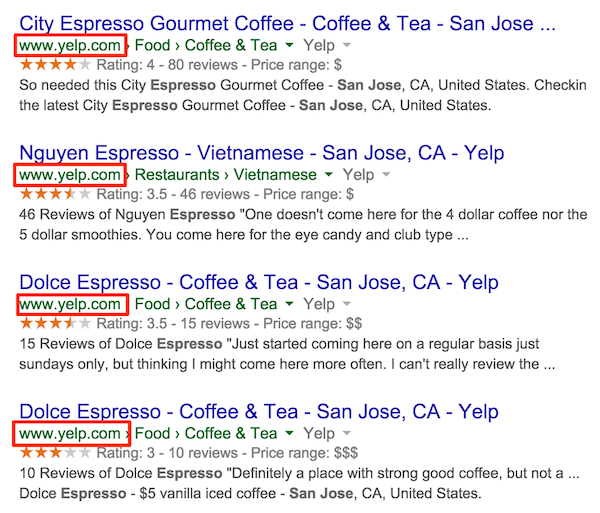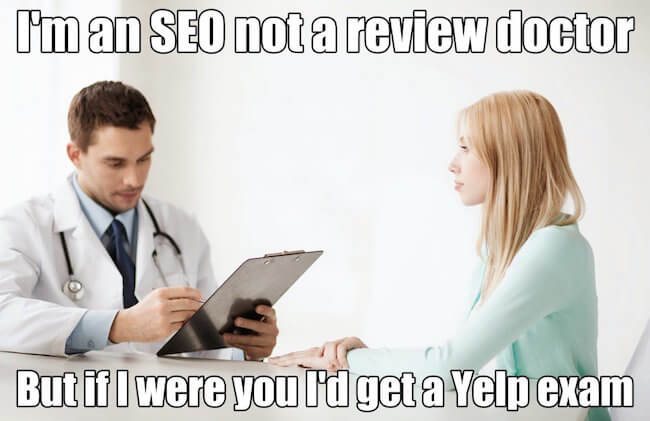Interview: Author Bill Tancer On The Search Impact Of Reviews
Contributor Mark Traphagen discusses the relationship between organic search and reviews with New York Times bestselling author.

Mark Traphagen interviews Bill Tancer
I recently had the opportunity to sit down with Bill Tancer, author of Everyone’s a Critic, at the SMX West 2015 conference where he delivered the keynote. We spoke about the importance of online reviews to search marketers, based on the extensive research he did for Everyone’s a Critic.
Tancer is the General Manager for Global Research at Experian Marketing Services. His first book, Click: What Millions of People Are Doing Online and Why It Matters, was a New York Times bestseller.
His expertise about consumer behavior online has made him a primary source for major publications and news media. (The following transcript was edited for brevity and clarity.)
Mark Traphagen: Let’s start with people, especially local businesses, who are concerned with organic search traffic first and foremost. What’s the relationship between reviews and organic search traffic?
Bill Tancer: In terms of local business — and this comes primarily from the Hitwise data set I discuss in Everyone’s a Critic — reviews are the conduit that gets people from search to a local business page.
For example, I created a collection of review sites and tracked the traffic going from search to those sites. I found that for those sites, about 67% of their traffic was coming from search, which is quite large.
You could do some anecdotal searches yourself. For example, when I searched “espresso San Jose” (because I’m an espresso freak), I found that the entire top fold of the search engine results page was just Yelp reviews. It went even further as you scrolled down.
Organic search is how consumers are getting to the review sites — which ultimately lead them to local businesses.
Mark: For all of our concern about driving organic search traffic to our own sites, we really should be considering the fact that much of that traffic is going to these review sites.
Bill: Absolutely, yes.
Mark: What are the key factors of reviews that most affect the search results? What are the key factors that you see that will make a business show up better in local search results, especially on the review sites?
Bill: That’s a good question. I’m not sure I know the answer to that in terms of how the algorithm is actually servicing the different sites, be it Google’s own reviews (which are incredibly important and appear to be showing up in the map results primarily) or Yelp reviews.
Again, it depends on the business. For example, if it’s a travel-related search, such as a hotel search, you’re going to see TripAdvisor results high up in most cases. How that differs, as far as which review sites predominate for any given search, I could only guess.
Mark: Let’s talk about what online marketers can do once they’ve realized how important reviews and review sites are. Search marketers are going to want to be involved in how reviews are collected, how they rank, and how they perform. What are some things that marketers should do to make sure they don’t jeopardize that process as they try to get involved themselves?
Bill: I think that, as search marketers, we kind of have to be like generalist physicians. When dealing with a local business, we have to talk about the importance of reviews to their business, even if they don’t directly impact organic rankings. This might be a little bit outside of our core competency of SEO or SEM.
But, as you mentioned in your previous question, paying attention to review sites is so integral in terms of getting consumers — not to your own site, but to a page that is going to drive them to your business — that it has to be part of the discussion.
Back to my generalist doctor analogy. I’m going in to see a general practitioner, and I’ve got this pain here in my right quadrant. The generalist’s diagnosis will be something like, “Okay, that pain may not be my area of expertise, but I must advise you to pursue this with the appropriate specialist.”
So in a similar way, reviews are important from a search perspective. I think all of us have to take that into account when we’re talking to a local business.
Mark: Let’s say I feel like I’m getting a disproportionate amount of negative or (what I feel are) unfair reviews. As a search marketer, I’m going to want to jump in and fix that. Are there ways in which trying to fix this problem might make it worse?
Bill: That’s a great question. Behind that is the question that a lot of small business owners have for me when I talk to them about reviews, which is, “How can I get more reviews?” I think one of the worst things you can do is actively solicit reviews, especially since many review sites actively discourage it.
It’s not going to kill the patient in this case, but what they’re likely going to experience is a lot of filtered reviews. Yelp has its algorithm. just like Google does, and it’s trying to filter out some of the fraudulent reviews. When it sees a lot of reviews from individuals that don’t have a review history, then you tend to see a lot of those get filtered.
One thing I can tell you about reviewers — not the people reading reviews, but the ones writing reviews — is that they’re a very, very small portion of the population as a whole. If you ask someone to write a review for you, there’s a good chance they probably have never written a review in their lives. There’s a good chance that if their one and only review is for your business, it’ll get filtered.
Here’s the interesting part. There’s a perception out there amongst small businesses that this filtering is actually extortion from the review sites — that review sites are pushing down positive reviews, or filtering them, unless you’re an advertiser.
However, Michael Luca of the Harvard Business School did an extensive study and found that there was no difference between advertisers and non-advertisers in what was being filtered out of their reviews.
That being said, I think there’s still a perception, because of that algorithm, that positive reviews are being pushed down. Because Yelp is selling advertising, people are making that connection, although it’s been disproven. I mention all of this because if you do advise your client to actively solicit reviews, filtering of the reviews might be a likely outcome.
Mark: Do you recommend responding to negative reviews?
Bill: Yes, absolutely.
Mark: Why?
Bill: That’s something that I brought up in the book. There’s been a lot of research on this topic. There’s one specific study that looked at negative reviews of restaurants and three response scenarios:
- You don’t respond at all.
- You respond inappropriately. You’re argumentative. You’re calling names.
- You respond appropriately. You address the concern. You do everything you should do with a review response.
When they looked at the consumer’s perception of those different scenarios, the worst thing you could possibly do was not respond at all. In fact, it was worse than responding inappropriately. Then, of course, responding appropriately is the best.
The advice I give to my small businesses, the ones that I’ve been working with and interviewing for this book, is that you treat a customer the same way in an online review forum as you would if they were in your restaurant or shop.
If someone came up to you and started complaining, you wouldn’t just turn around and walk away. You’d address that concern, and you’d probably do it in a professional manner. You can imagine if you just turned around and walked away how the consumer would perceive that.
Importantly, you should not focus solely on the negative reviews. Think about the positive reviews as well. I interviewed a lot of the high volume reviewers like the Yelp Elite Squad, and many told me, “We really appreciate when we get a thank you from a business when we leave a positive review.”
Same rule applies here: If someone was in your shop and told you that this was the best experience they’d ever had, you wouldn’t just turn around and walk away — you would thank them for their feedback. I think that just using some common sense is going to go miles in terms of bettering a business’ position with online reviews.
Mark: One final question. On your blog, you recently cited some information about differentiation between mobile and desktop reviews. Can you tell us what you learned about that?
Bill: Yeah. Of course, there’s a very high volume of review traffic happening on mobile. It’s just the form factor and the fact that people are checking things “on the fly” when they’re out and about.
I think there are a lot of interesting things happening with mobile. It’s not just about the volume. I think it’s going to affect the ubiquity of reviewers. We’re going to see a lot more demographics, a lot more individuals of different geographic areas and age groups and psychographic segments, starting to review because of mobile.
We’re also seeing a lot of “showrooming,” and I think businesses are getting wise to this. Showrooming is where somebody comes into your shop, uses a phone to compare prices, then buys online. Some smart businesses are finding ways to get the consumer to check reviews as a way of making their purchase decision in store, using sites like Amazon to do so.
Mark: Turn their game around on them.
Bill: Absolutely. I think we’re going to see a reverse showrooming with mobile devices as people try to make intelligent decisions as they shop at the store.
Mark: Very interesting. Thanks, Bill. Appreciate it.
Bill: Absolutely, Mark.
Contributing authors are invited to create content for Search Engine Land and are chosen for their expertise and contribution to the search community. Our contributors work under the oversight of the editorial staff and contributions are checked for quality and relevance to our readers. The opinions they express are their own.
Related stories
New on Search Engine Land


